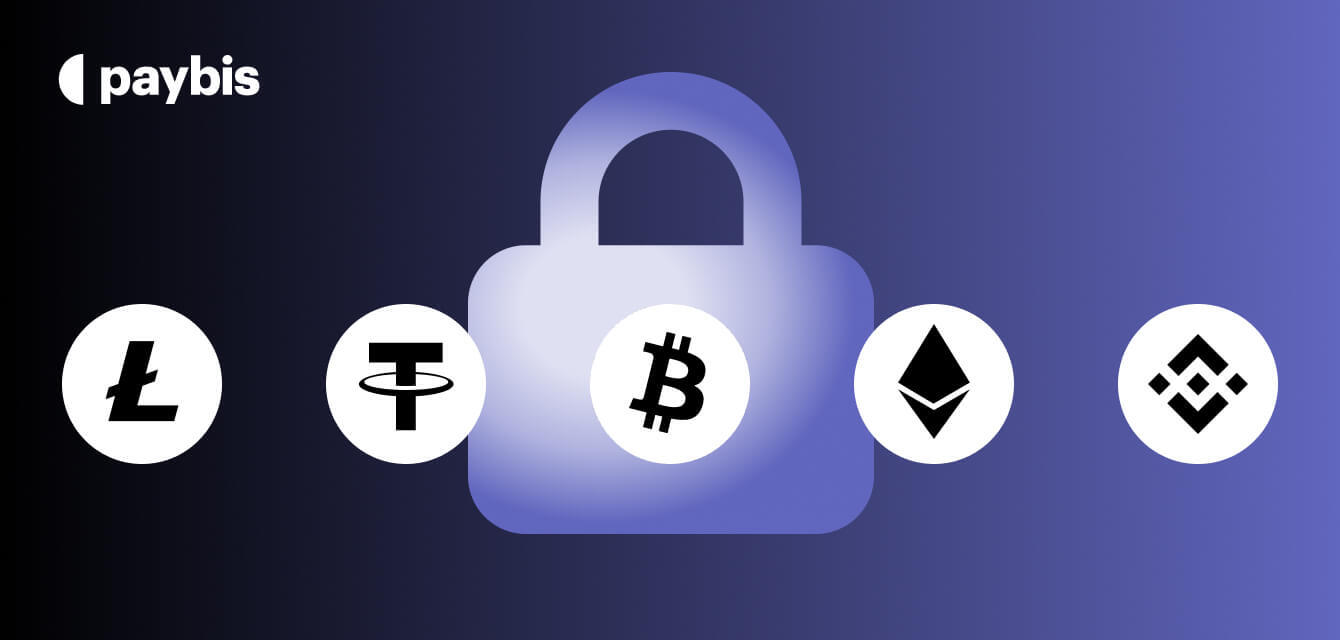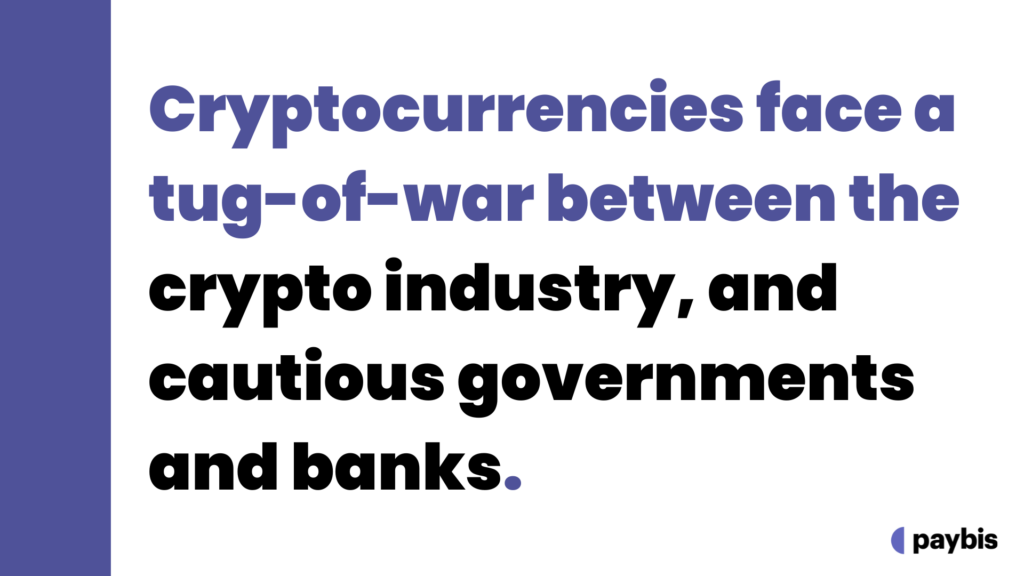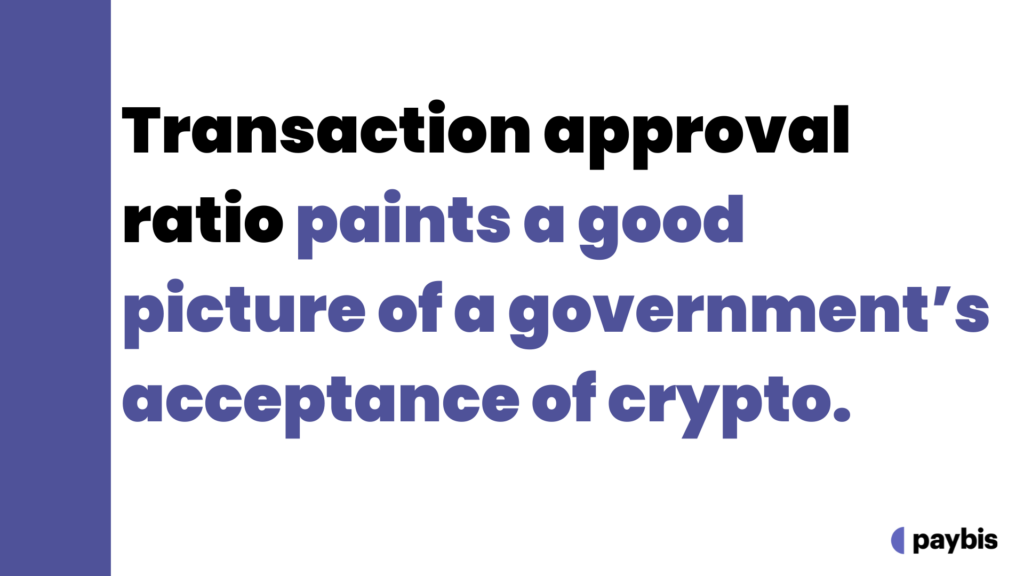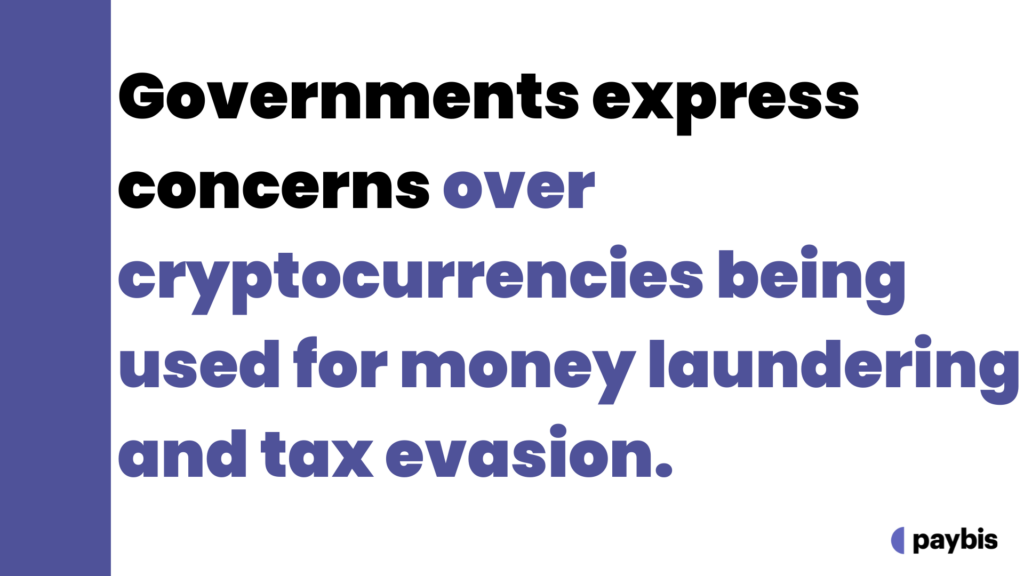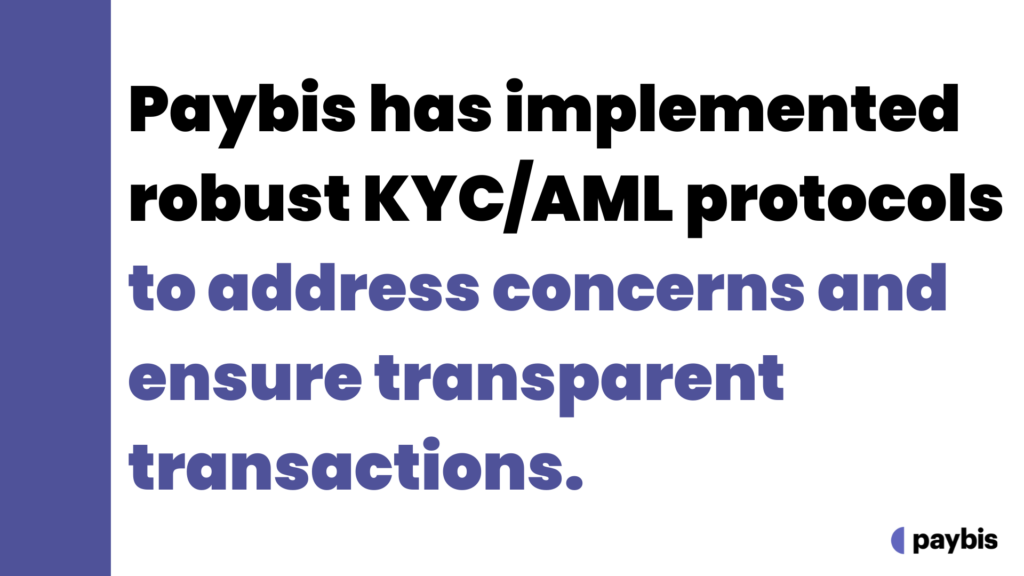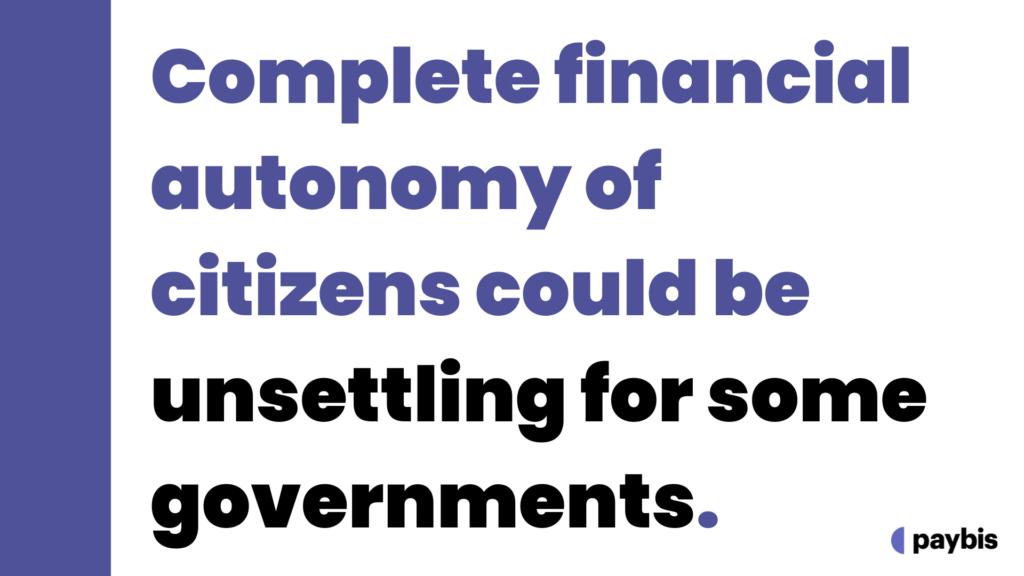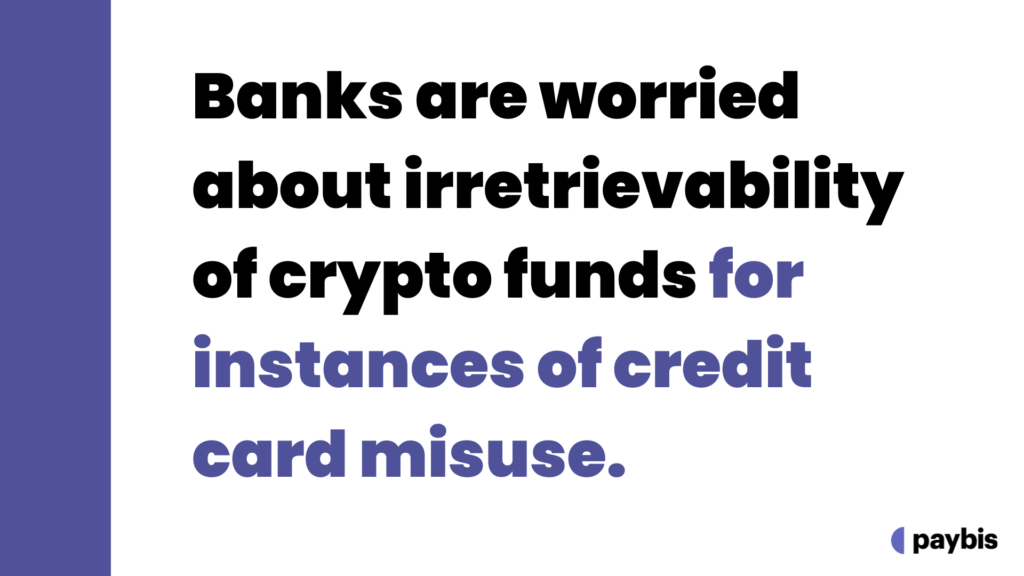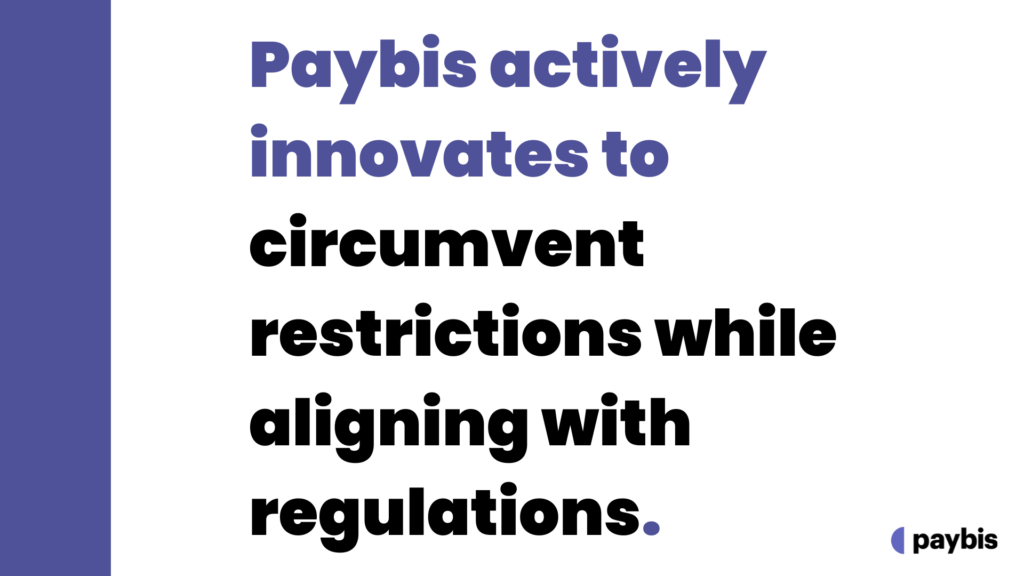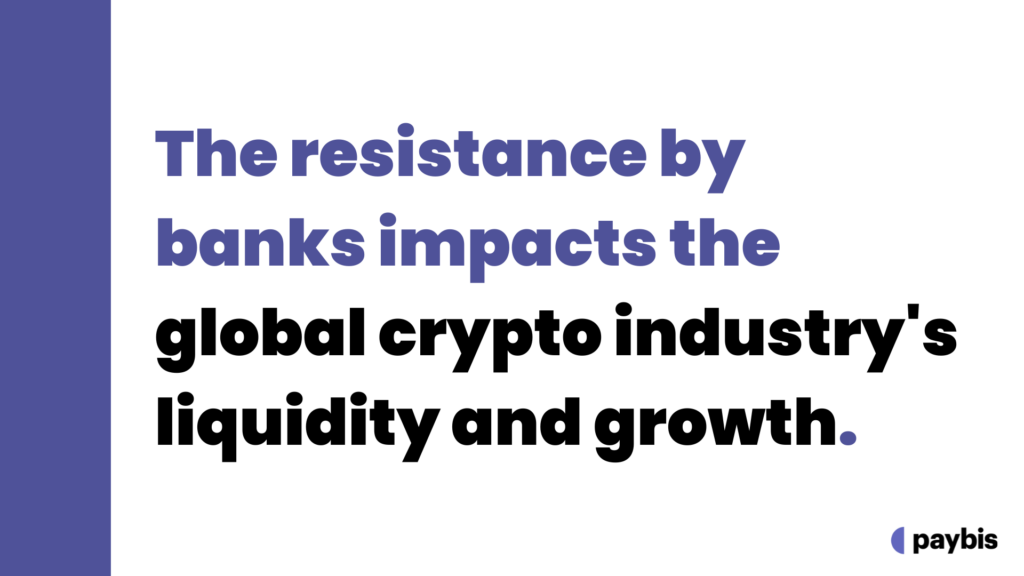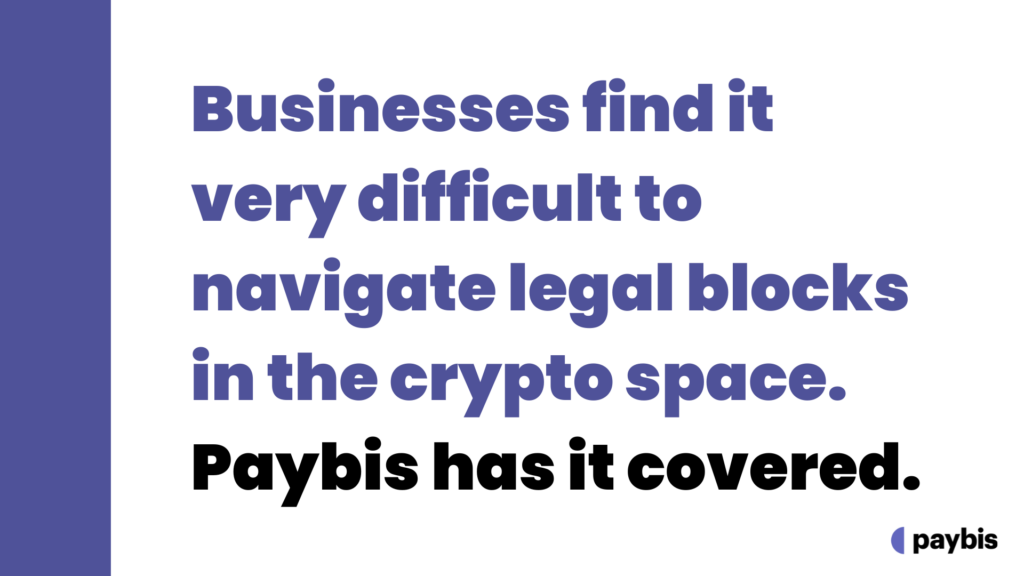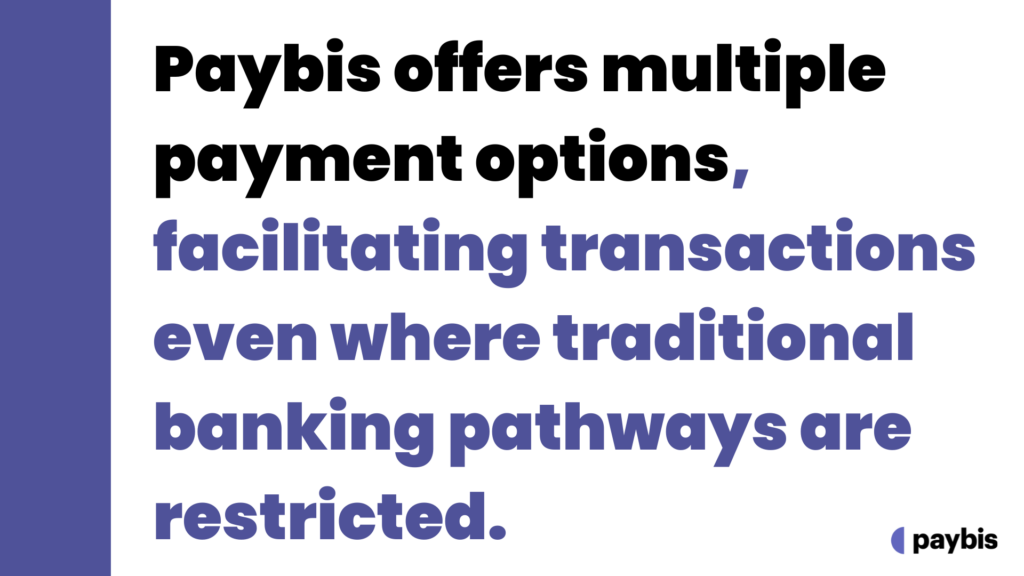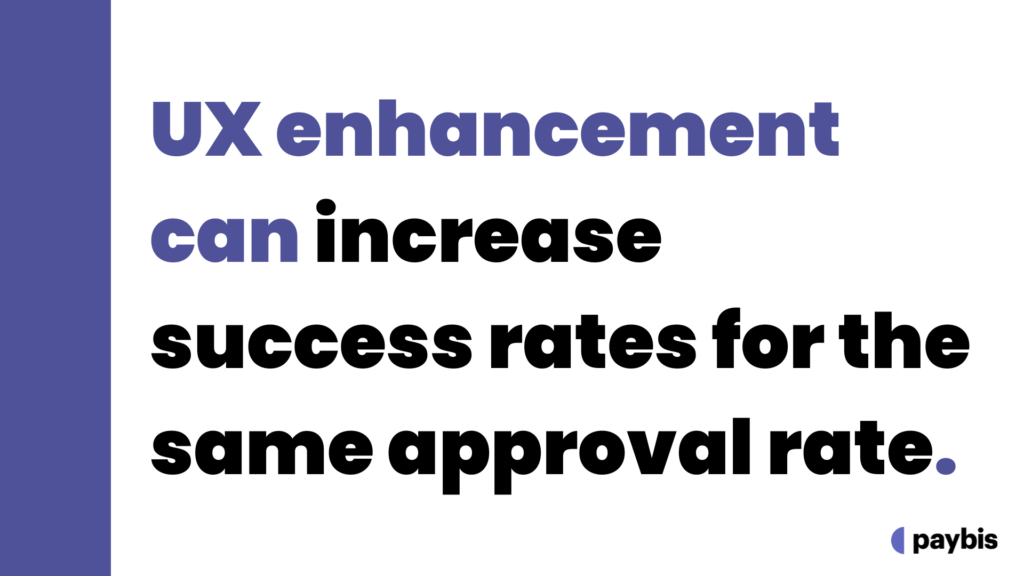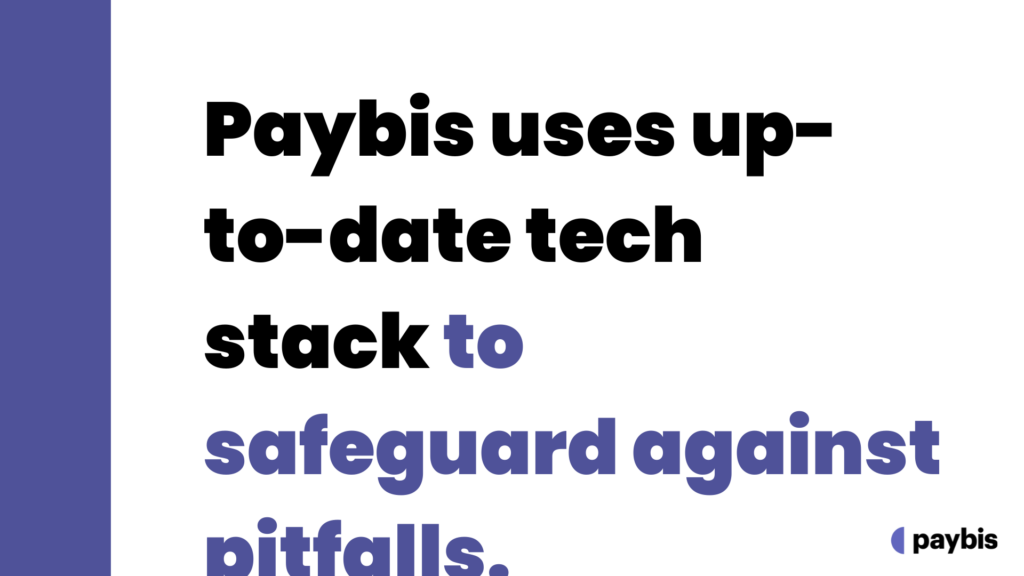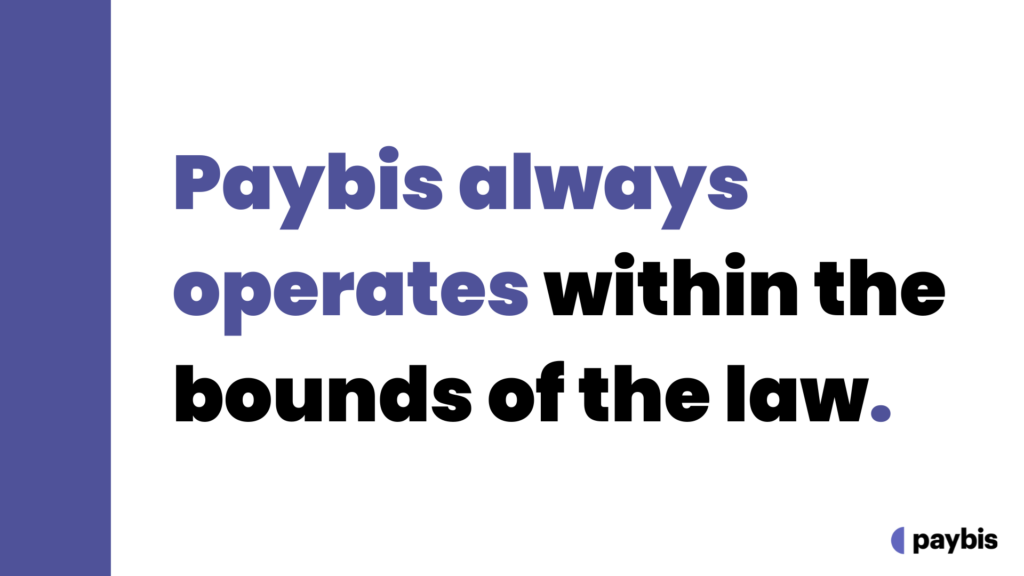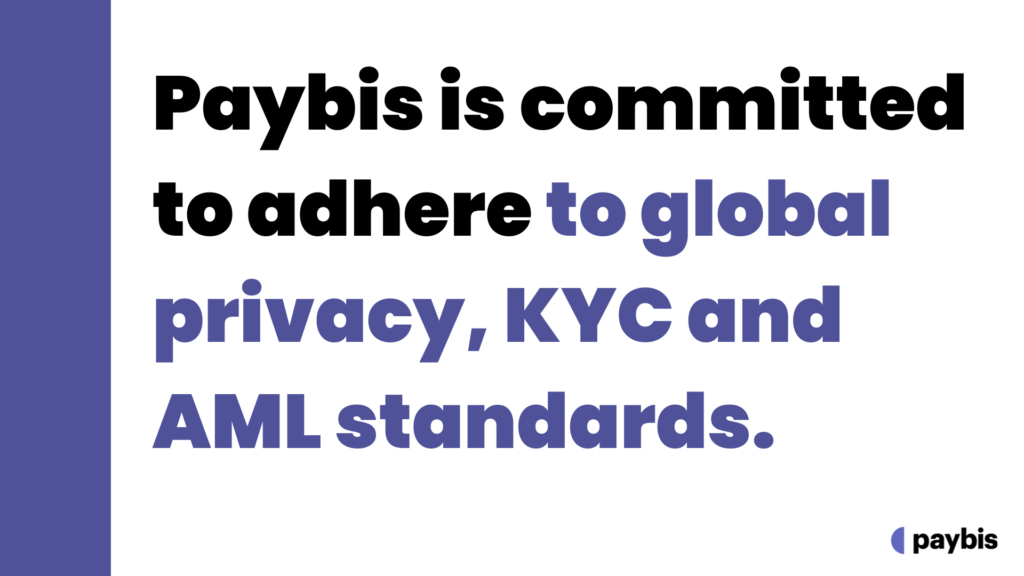Government vs. Crypto: Where They Block the Most Crypto Transactions
The emergence of cryptocurrencies has paved the way for groundbreaking shifts, unparalleled decentralization, and a revolutionary mode of exchange. But, as with any transformational change, cryptocurrencies have found themselves at the center of an intricate tug-of-war.
On one side stands the crypto industry, driven by innovators and proponents of a decentralized financial system, and on the other are governments and banks, cautious about the potential ramifications these digital currencies might have on traditional systems and national security.
There’s an intriguing disparity in how banks across different regions treat crypto transactions. This divergence isn’t solely a product of governmental policies, but often arises from the banks’ own risk assessments, compliance strategies, and perceptions of the crypto market.
The data we’ve gathered offers a compelling snapshot of these variances, presenting a unique perspective into where banks and financial institutions are least accommodating of cryptocurrency transactions. We also shed light on what Paybis is doing to enable citizens of these countries to acquire cryptocurrencies hassle-free.
Table of contents
- Analysis of Approval Ratios
- A Deep Dive into Countries Blocking Crypto Transactions
- Factors Influencing Government and Bank Decisions
- The Wider Crypto Industry: Consequences and Repercussions
- Paybis: Leading the Charge in Combating Transaction Blocks
- Seeking a Balanced Approach: Can There be a Middle Ground?
- Paybis Takes Care of it All
Analysis of Approval Ratios
The concept of approval ratios not only presents numbers but tells us a story – one of acceptance, caution, and, at times, outright resistance.
By delving into these metrics, we unveil the banking sector’s stance on cryptocurrency transactions across various countries.
Full Embrace
Some countries seem to be wholeheartedly embracing the crypto wave.
Countries such as SH (Saint Helena), AG (Antigua and Barbuda), LA (Laos), MP (Northern Mariana Islands), BW (Botswana), MF (Saint Martin), KG (Kyrgyzstan), FO (Faroe Islands), GQ (Equatorial Guinea), and VU (Vanuatu) all boast a 100% approval ratio.
This could indicate a more liberalized banking sector or perhaps a proactive approach to integrating with the new digital economy.
High Acceptance
Some countries are not far behind in their acceptance, with banking sectors that are very accommodating of cryptocurrency transactions.
This group includes GI (Gibraltar) with an 80% approval rate, CY (Cyprus) at 73.1%, and JE (Jersey) with an 88.9% rate.
Their high approval rates hint at a friendly stance towards crypto, without going all in like the 100% group.
Moderate Acceptance
Countries like DE (Germany) at 55.3%, BE (Belgium) at 53.8%, and AT (Austria) at 56% have approval rates that suggest a balanced approach.
While they seem to be more accepting of crypto than others, there’s still a level of reservation that may be driven by more rigorous regulatory checks or a combination of other factors.
Cautious Stance
Countries such as GR (Greece) with an approval rate of 48.2%, HK (Hong Kong) at 50%, and LU (Luxembourg) also at 50%, indicate caution.
Their banks might be on the fence about cryptocurrency transactions, leading to a split in the approval rates.
Resistant Stand
Then there are countries like CN (China), RU (Russia), and IQ (Iraq) that have registered a complete blockade with a 0% approval rate.
This group, which is quite sizable, offers the most direct contrast to the countries fully embracing crypto transactions.
This could be due to a myriad of reasons, from strict regulations, concerns about financial security, or broader geopolitical strategies.
A Deep Dive into Countries Blocking Crypto Transactions
Let’s take a closer look at countries where banks have shown significant resistance to crypto transactions, either due to regulatory concerns, security fears, or perhaps other underlying factors.
China (CN) – 0% Approval Rate
The world’s second-largest economy has been firmly resistant to decentralized cryptocurrencies.
Beijing’s crackdowns on crypto exchanges and Initial Coin Offerings (ICOs) highlight a clear intent to maintain control over the nation’s financial ecosystem. The move towards launching its digital Yuan also signifies the country’s ambition to champion its own centralized digital currency over decentralized counterparts.
Russia (RU) – 0% Approval Rate
Despite having a strong tech industry and a significant number of crypto enthusiasts, Russia’s banking institutions have shown no acceptance towards crypto transactions. This might be a reflection of the government’s oscillating stance, often veering between acceptance and skepticism. Regulations aiming to curtail money laundering and other illicit financial activities could be driving this complete blockade.
Iran (IR) – 0% Approval Rate
Under heavy economic sanctions and looking for ways to circumvent them, one might expect Iran to embrace cryptocurrencies. However, the banking sector’s non-acceptance underscores the challenges and complexities the nation faces, balancing the need to protect its financial sector from potential threats while also seeking economic reprieve.
Egypt (EG) – 0.6% Approval Rate
Not far from a complete blockade, Egypt has shown an almost negligible acceptance rate. Concerns related to money laundering, coupled with conservative religious views deeming cryptocurrencies as “haram” (or forbidden), play a part in this near-total resistance.
Argentina (AR) – 2.0% Approval Rate
In Argentina, a country plagued with high inflation rates and economic instability, one might expect a higher embracement of cryptocurrencies as an alternative. However, the banking sector’s low acceptance rate suggests a protective approach, perhaps in an attempt to prevent capital flight or maintain financial stability.
Factors Influencing Government and Bank Decisions
Many factors drive governments and banks to either embrace, restrict, or outright block crypto transactions.
Let’s unpack some of the key considerations that underpin these decisions.
Money Laundering and Illicit Activities
Cryptocurrencies, with their decentralized nature, offer a degree of anonymity that can be misused.
Governments worldwide voice concerns about their potential in facilitating money laundering, tax evasion, and other fraudulent activities.
For instance, cases where cryptocurrencies were employed in underground markets or ransomware attacks have often made headlines, raising alarms about their potential misuse.
Paybis, understanding these worries, has introduced robust Know Your Customer (KYC) and Anti-Money Laundering (AML) protocols, ensuring that transactions are transparent and users are verified, significantly minimizing illicit activities. Our team takes care of all the verification when your integrate the Paybis White Label On/Off-Ramp.
Terrorism Financing
The decentralized and borderless attributes of cryptocurrencies can potentially aid in the seamless transfer of funds across borders without the scrutiny typical of traditional banking channels.
This has raised fears about potential exploitation by extremist groups to finance their operations covertly, thereby posing significant national security risks.
Recognizing this, we continuously monitor transactions, employ advanced algorithms to flag and halt suspicious cross-border transfers, safeguarding both your user base and wider societal interests.
Dominance Over Financial Systems
Historically, nations have maintained firm control over their monetary policies and financial systems.
Cryptocurrencies challenge this control, introducing a decentralized system that operates beyond the reach of central banks and government policies.
This shift can be unsettling for governments as it could undermine their economic strategies, especially in countries with tightly controlled financial ecosystems.
So, Paybis actively engages in dialogues with regulators and adheres to international financial guidelines, bridging the gap between traditional finance and the crypto world.
Credit Card Misuse
There’s growing trepidation among banks about credit card misuse in the purchase of cryptocurrencies.
A surge in crypto’s value could encourage speculative buying on borrowed money, posing risks to both the consumer, in case of a market crash, and the banks, if there’s a default in credit repayment.
To counter this, Paybis has set up transparent fee structures and provides educational resources for users, ensuring that they make informed decisions without falling into the trap of reckless speculation.
Measures to Circumvent Restrictions
Faced with these barriers, crypto enthusiasts and investors have sought innovative ways to sidestep restrictions.
From using peer-to-peer platforms to VPNs, and from relying on decentralized exchanges to embracing privacy coins, the crypto community is continuously exploring avenues to access and trade digital currencies, underscoring the indomitable spirit of this burgeoning ecosystem.
Paybis stands at the forefront of this innovation, offering multiple payment avenues, facilitating transactions even in regions where traditional banking pathways are restricted.
The Wider Crypto Industry: Consequences and Repercussions
The banking barricades we’ve observed, especially in countries like CK, RU, CN, and several others where approval ratios hover around 0%, have far-reaching implications on the global crypto industry.
These blocks are not mere roadblocks in isolated areas but resonate throughout the crypto ecosystem, affecting businesses, investors, and even the pace of innovation.
Impact on Industry Landscape
When transactions are blocked in significant markets like RU or CN, it deprives the crypto industry of substantial liquidity. This means fewer investments and lesser capital to fuel projects. It also poses challenges for crypto exchanges and platforms that rely on a wide user base for volume and growth.
However, the very existence of these restrictions underlines the crucial role that platforms like Paybis play, as we strive to bridge these gaps, ensuring that regions with such stringent blocks still have pathways to access the world of cryptocurrencies.
Implications for Businesses and Investors
Businesses looking to integrate blockchain technology or accept crypto payments find themselves hamstrung in regions with high banking blocks. Their potential growth is stymied, and in some cases, these businesses may even relocate to more crypto-friendly regions, leading to brain drain and capital flight.
For investors, the volatility introduced by such blocks can impact market sentiment. If, for instance, a significant portion of investors in a country like EG, with a mere 0.6% approval ratio, cannot easily access their investments, it can lead to uncertainty and dampened enthusiasm.
Technological Advancement and Innovation
Arguably, one of the most concerning repercussions of these transaction blocks is the stifling of innovation.
In countries where the banking sector is hostile to crypto, local talents might find themselves hindered, unable to experiment or develop new blockchain-based solutions. This is a missed opportunity, especially considering the promise and potential of blockchain technology.
Paybis: Leading the Charge in Combating Transaction Blocks
Paybis stands as a beacon to ensure cryptocurrency transcends geopolitical borders and reaches everyone while being within the bounds of the law.
Alternative Payment Modes
Recognizing that traditional banking avenues might be shut for many, Paybis has worked diligently to incorporate alternative payment methods (APMs). This ensures that, even in countries with low transaction approval rates, individuals can seamlessly buy and sell cryptocurrencies, bypassing the barriers put up by conventional banks.
User Experience (UX) Enhancements
A frictionless user experience is paramount to Paybis. Every touchpoint, every interaction is optimized, ensuring that users, whether from countries with high approval ratings like DE (55.3%) or lower ones like EG (0.6%), find the process intuitive and efficient.
Advanced Technology Deployment
With the integration of Artificial Intelligence and other cutting-edge technologies, Paybis ensures that every transaction’s legitimacy is validated. This not only safeguards your users from potential pitfalls but also instills confidence in banks and financial institutions, who often block transactions due to fears of fraudulent activities.
Collaborations with Regulators
Paybis doesn’t believe in circumventing the system; it believes in bettering it. Through proactive dialogues with regulators and decision-makers, Paybis champions the cause of crypto. By showcasing the vast potential and addressing concerns, the platform plays an instrumental role in shaping a more crypto-receptive regulatory landscape.
Adherence to Standards
The crypto realm is rife with concerns over money laundering and fraudulent activities. Paybis, in its unwavering commitment, ensures strict adherence to MLRO, AML, and KYC standards. Moreover, by effectively addressing chargeback issues, the platform establishes itself as a trustworthy bridge between the traditional banking world and the dynamic realm of cryptocurrencies.
Seeking a Balanced Approach: Can There be a Middle Ground?
Cryptocurrencies, hailed as the future of finance, present both exceptional opportunities and inherent risks.
Like any transformative technology, their potential and perils are deeply intertwined, necessitating a cautious yet open approach.
The Indispensable Need for Balanced Crypto Regulations
Absolute restrictions or unbridled freedom – neither extreme serves the best interests of the public or the financial ecosystem. What’s needed is a calibrated approach where crypto innovations flourish within a secure, structured framework.
Robust KYC and AML Implementations
Know Your Customer (KYC) and Anti-Money Laundering (AML) measures have proven invaluable in traditional financial spaces. These protocols, when implemented effectively in the crypto domain, can assuage many concerns governments and banks have about illicit activities. They ensure that while transactions are decentralized, they aren’t anonymous or untraceable, striking a balance between privacy and accountability.
Exemplifying Nations with Equilibrium
Certain countries have already paved the way, showcasing that it’s possible to foster a vibrant crypto ecosystem without compromising security. These nations have implemented regulations that protect investors and the national economy, while still allowing space for crypto ventures to innovate and thrive. Their frameworks offer valuable insights and can serve as templates for countries still grappling with the crypto conundrum.
Paybis Takes Care of it All
As we navigate this era of digital finance, it’s crucial to remember that the crypto sector, governments, and banks are not adversaries but potential collaborators in sculpting the future of money. A future where technology meets trust, and innovation dovetails with regulation.
When you integrate the Paybis White Label On/Off-Ramp on your website or app, you can focus on doing what you do best — building your business — while our team keeps the engine running.
We take care of KYC/AML requirements, screen and block fraudulent transactions, secure licenses for expansion, provide 24×7 customer support, and more!
Disclaimer: Don’t invest unless you’re prepared to lose all the money you invest. This is a high‑risk investment and you should not expect to be protected if something goes wrong. Take 2 mins to learn more at: https://go.payb.is/FCA-Info
